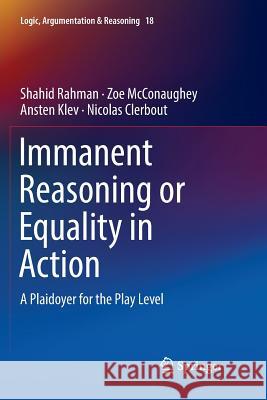Immanent Reasoning or Equality in Action: A Plaidoyer for the Play Level » książka
topmenu
Immanent Reasoning or Equality in Action: A Plaidoyer for the Play Level
ISBN-13: 9783030081874 / Angielski / Miękka / 2019 / 332 str.
Kategorie BISAC:
Wydawca:
Springer
Seria wydawnicza:
Język:
Angielski
ISBN-13:
9783030081874
Rok wydania:
2019
Wydanie:
Softcover Repri
Numer serii:
000461455
Ilość stron:
332
Waga:
0.49 kg
Wymiary:
23.39 x 15.6 x 1.88
Oprawa:
Miękka
Wolumenów:
01
Dodatkowe informacje:
Wydanie ilustrowane











